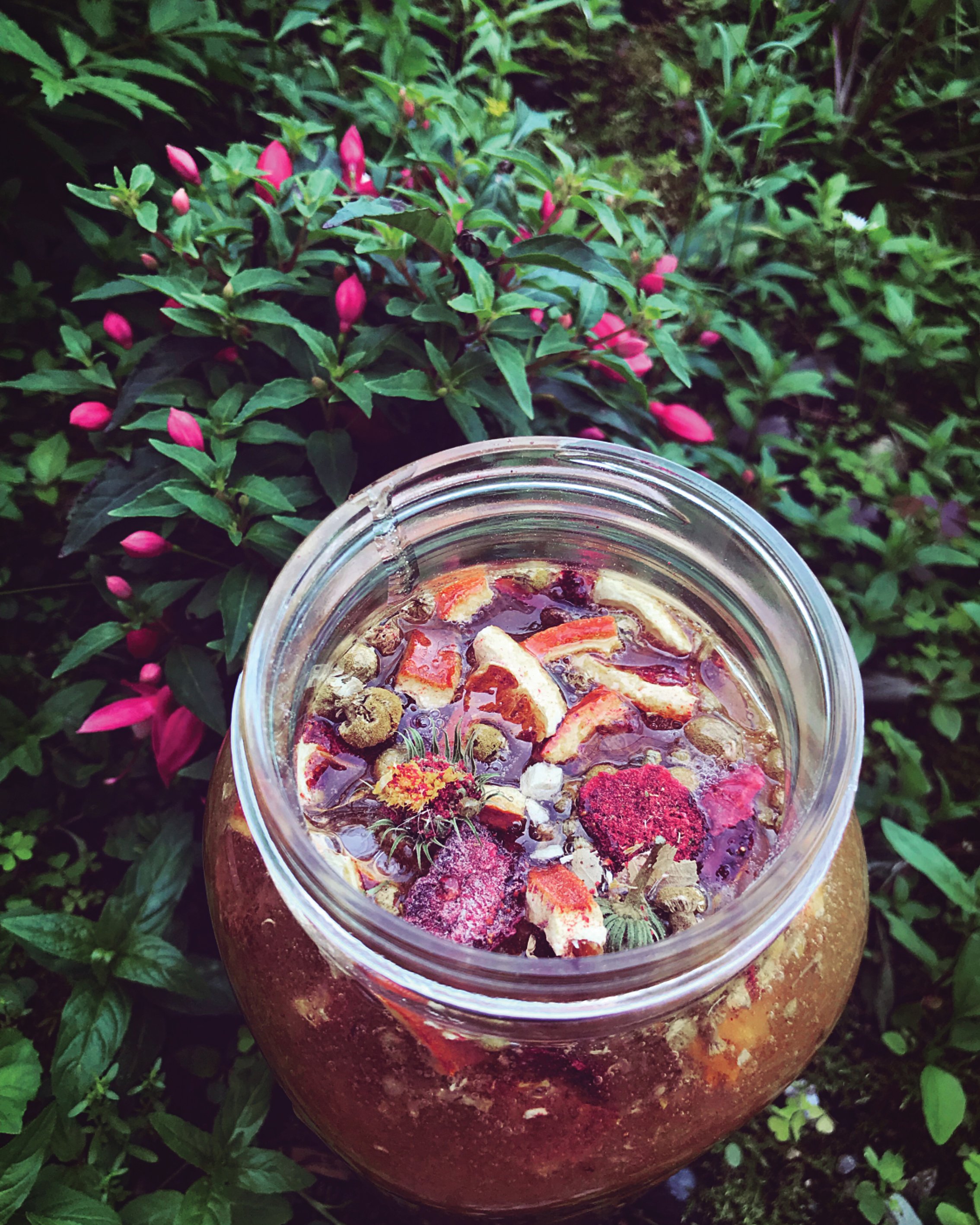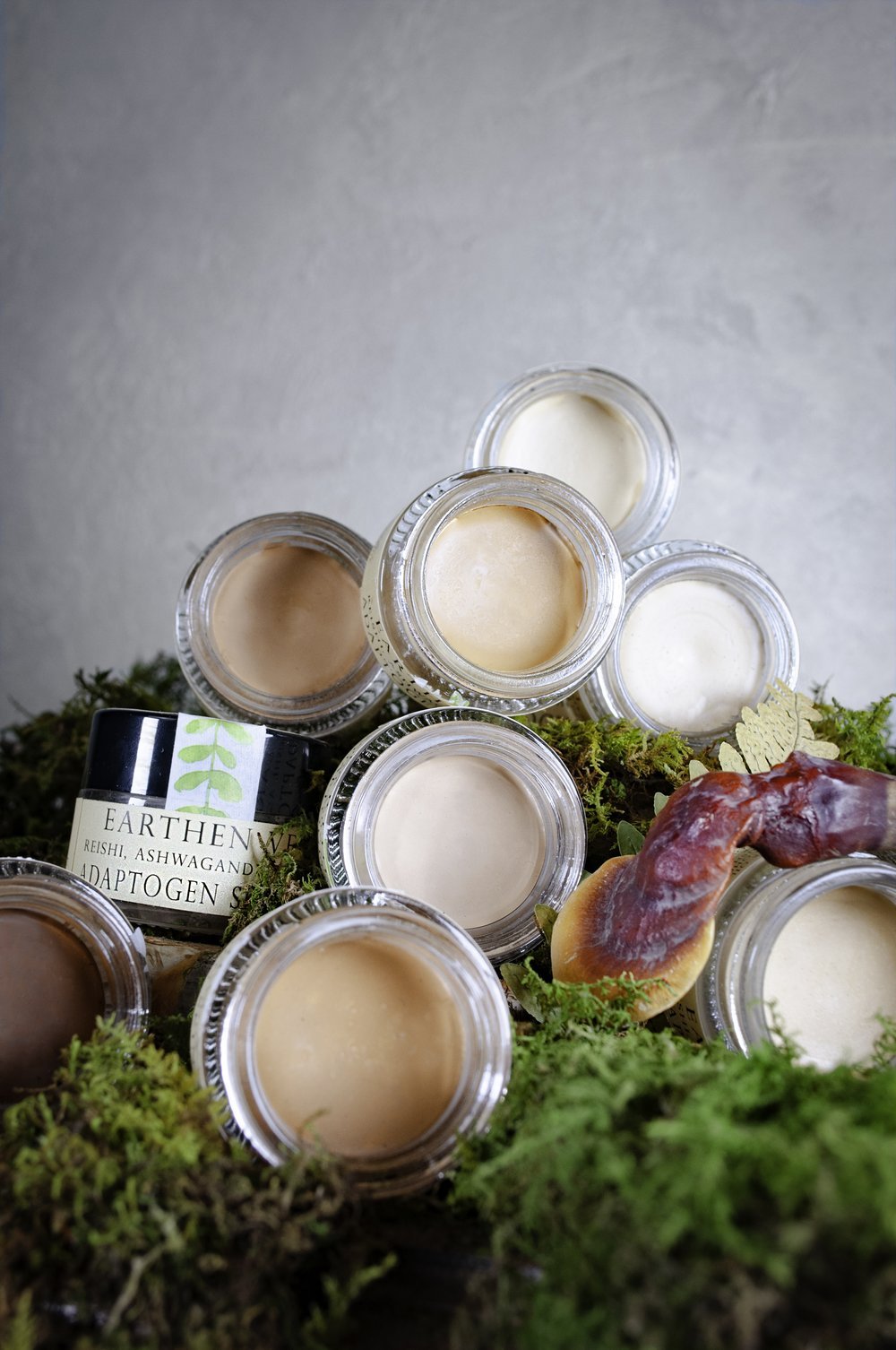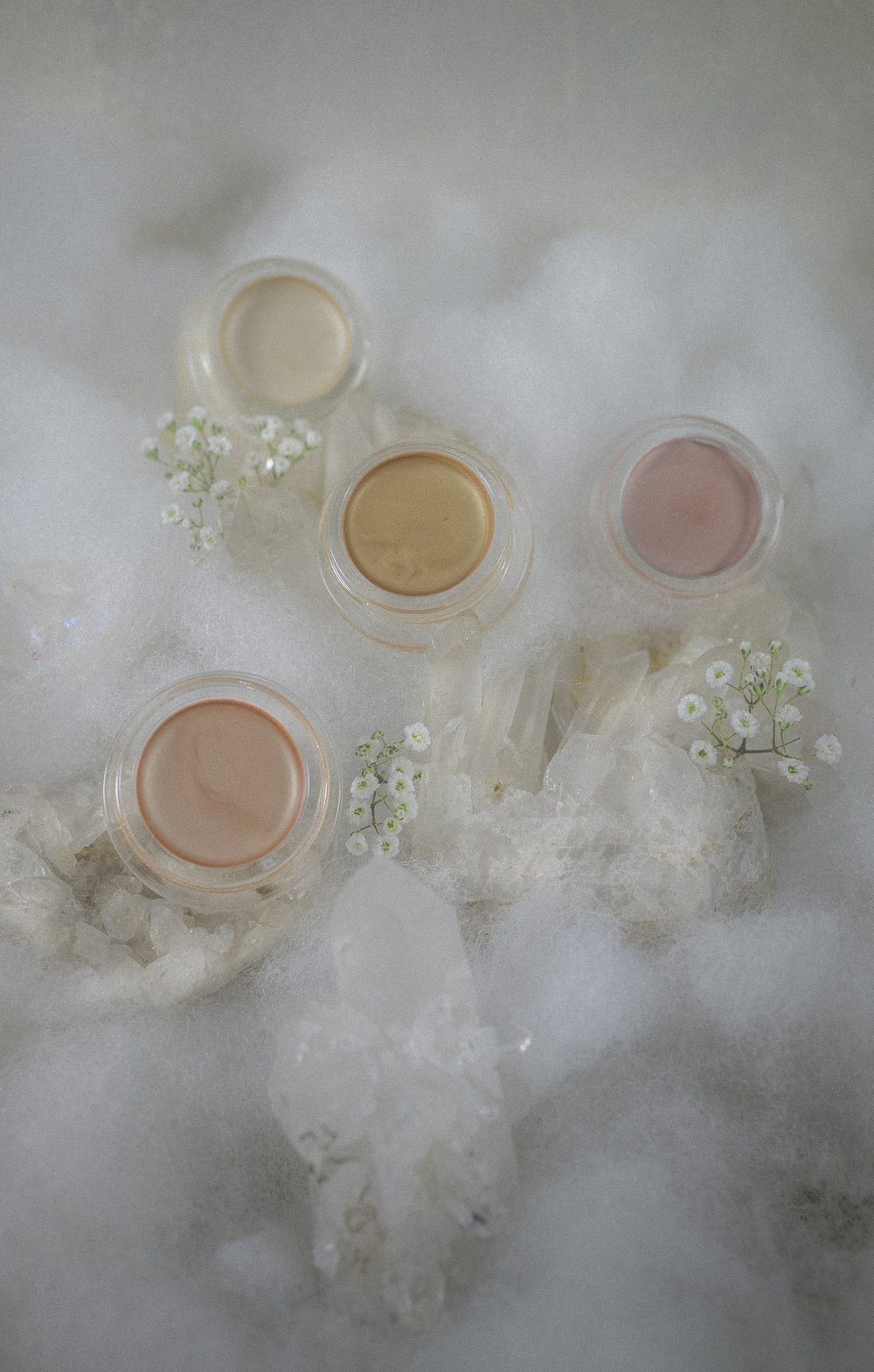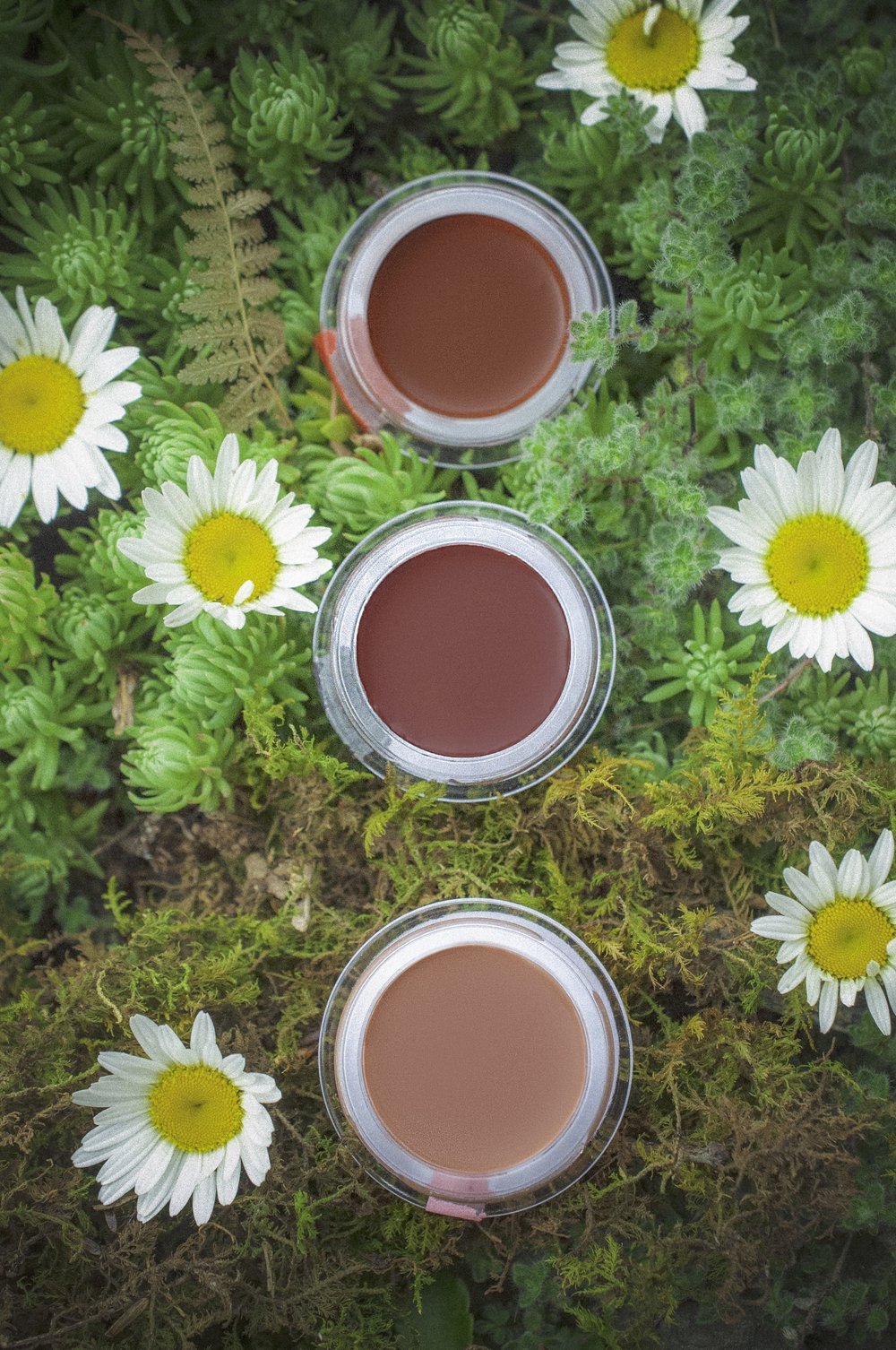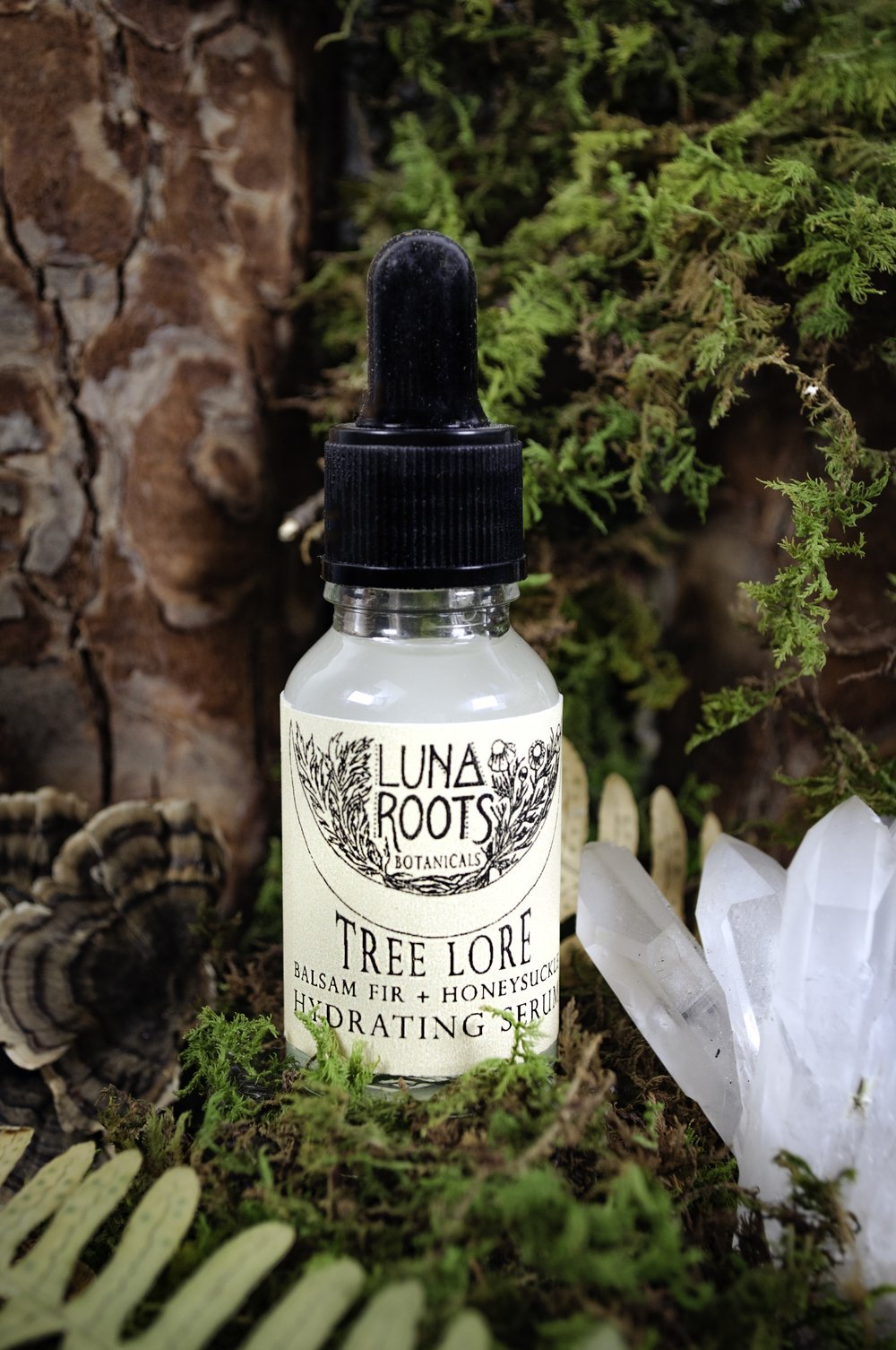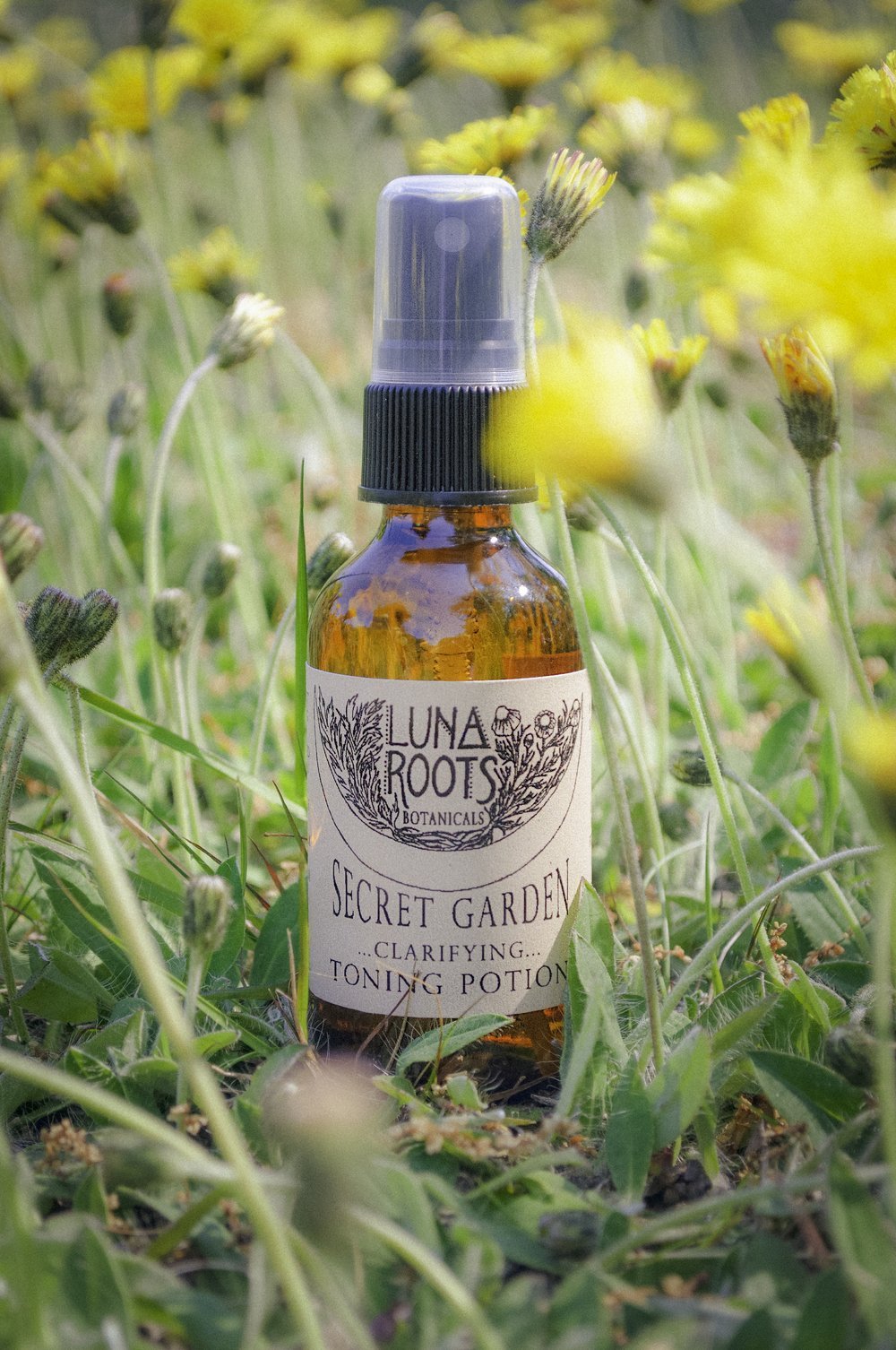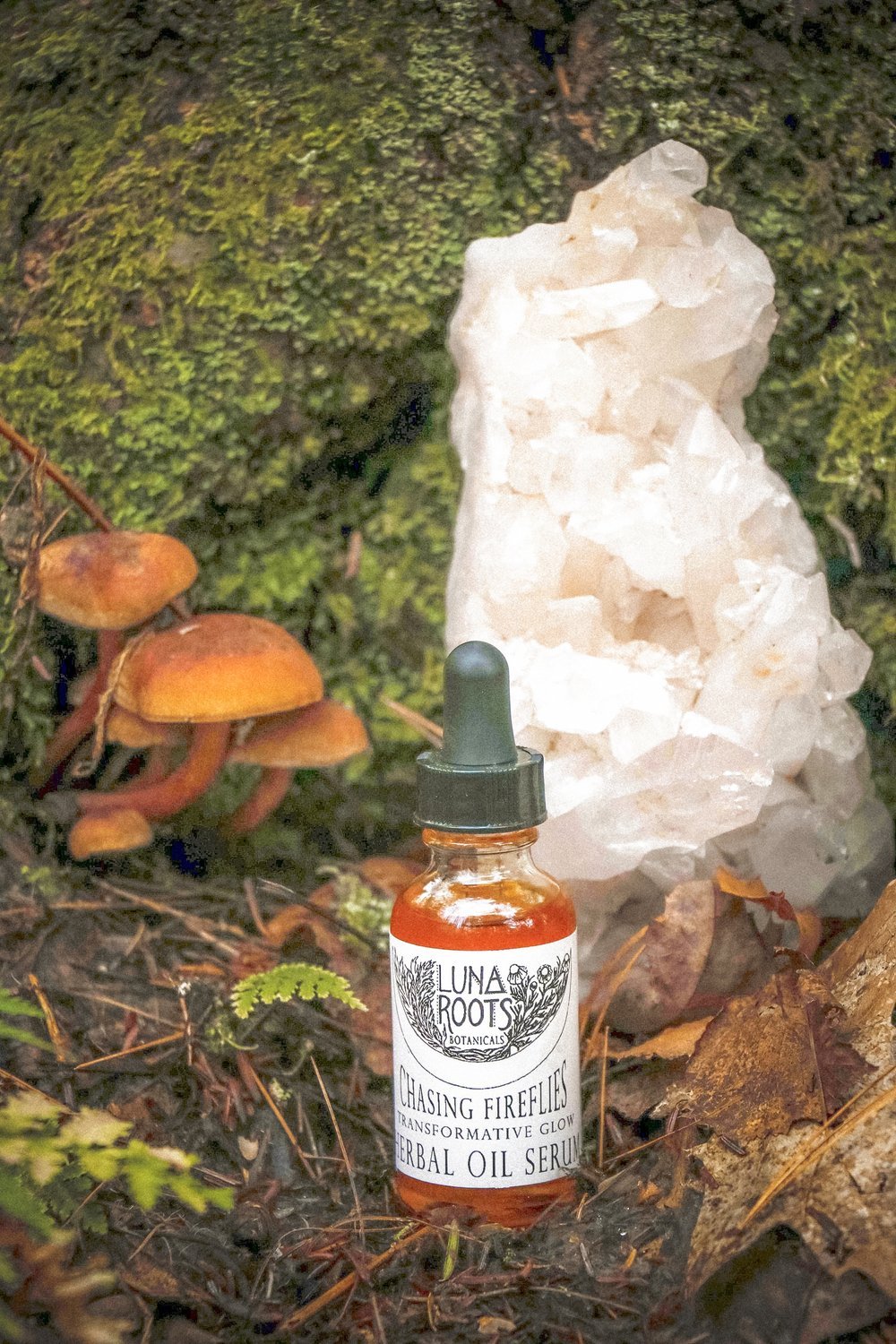How to make the switch to natural makeup + skincare (and why)
How to make the switch to natural makeup + skincare (and why)
If you’re here, you also want to be closer to nature.
And too often, industrial cosmetics and skincare are full of toxic compounds that harm us as well as damaging the Earth.
But thankfully, we have immense amounts of information at our fingertips. It can be simpler than ever to make the changes you want!
If you’re embarking on your natural makeup & skincare journey but maybe don’t quite know how you’ll get there— this mini guide is for you!
Starting on your journey toward natural skincare and cosmetics…
doesn’t require an all-or-nothing approach. When you recognize that the definition of “natural” can change from one person or brand to the next, you’ve found the key to navigating a successful switch. This is making conscious choices that align with your core values.
Here are tips for a slow transition, allowing you to reconnect with nature, the Earth, and the principles of slow medicine— all without overwhelming yourself.
5 tips for your sustainable natural switch
1. Discover Your Why: take a moment to reflect on why this shift matters to you personally. Whether it’s a desire for healthier products, reducing your environmental impact, inner healing, avoiding harsh chemicals, simplifying your routine, supporting small businesses, reconnecting with the Earth, or embracing slower, less commercialized forms of beauty—your motivation is unique to you! Your journey is yours alone, and there’s no one-size-fits-all answer.
2. Know your skin: What’s your skin type? What does your skin need (for example, intense moisture, low oil, etc.)? And although natural products are gentler than their toxin-laden industrial counterparts, they can still trigger the skin of those with allergies and sensitivities. It's important to know what ingredients (if any!) you don't respond well to. Under each of our potions, you'll find a full list of ingredients to check that it's right for you.
3. Educate Yourself: Armed with your reasons for the switch, delve into the ingredient lists of your current products. What you want to avoid? What you are seeking in exchange? Might be it’s organic-only, plant based, botanical focused or non-toxic synthetics. Welcome a mix of all the above, if this aligns for you. This empowers you to make independent, informed choices that are not fear-based and are aligned with your values and well-being.
4. Mindful Ingredient Selection: while navigating the world of ingredients, be discerning. Prioritize avoiding substances like phthalates, micro/liquid plastics, talc, parabens, and synthetic fragrances (list below). Also natural fragrances + essential oils if you are highly sensitive. Remember, the goal is not to demonize all non-natural ingredients but to select consciously, ensuring they are non-toxic and/or environmentally friendly and are suitable for your unique constitution.
Gradual and Intentional Progress: instead of overhauling your entire routine at once, take deliberate and small steps towards a more natural approach. Allow space for your spiritual, healing and reclaiming process to unfold. Begin with the products you use most frequently, such as skincare or foundation, and start exploring samples or smaller portion sizes of the healthier alternatives. If you’re hesitant to part with a favorite product, be kind to yourself— change doesn’t happen overnight, and it might take some time to find a switch that resonates with you.
Your starter list of ingredients to avoid
1. Oxybenzone and Octinoxate: found in sunscreens, these chemicals can harm coral reefs and marine life. Oxybenzone has also been linked to potential endocrine disruption in humans.
2. Triclosan: an antimicrobial agent found in personal care products, triclosan may contribute to water pollution, disrupt aquatic ecosystems, and has been associated with concerns related to antibiotic resistance in humans.
3. Parabens: used as preservatives, parabens have been detected in water sources and are a potential concern for both the environment and human health. They have been linked to endocrine disruption and found in human tissues.
4. Phthalates: commonly found in fragrances and plastics, phthalates are known to disrupt the endocrine system in humans. These compounds have also been detected in water sources, raising environmental concerns.
5. Polyethylene Glycols (PEGs): Used in skincare and cosmetics, PEGs may contribute to water pollution. Some PEGs, through the ethoxylation process, can be contaminated with potentially harmful substances.
6. Formaldehyde and Formaldehyde-Releasing Agents: Found in some cosmetics and personal care products, formaldehyde and its releasing agents are known human carcinogens. They can also contribute to air pollution.
7. Siloxanes (Cyclotetrasiloxane, Cyclopentasiloxane): Siloxanes are used in various personal care products and may persist in the environment. Some siloxanes have been associated with potential endocrine disruption.
8. Ethanolamines (DEA, MEA, TEA): These compounds, found in cosmetics and personal care products, may contribute to water pollution. DEA has been classified as a possible human carcinogen.
9. Talc: The mining and processing of talc can have environmental implications, and some talc products may be contaminated with asbestos. Long-term exposure to asbestos is known to cause serious health issues.
10. Fragrance: Synthetic as well as natural fragrance compounds can cause allergic reactions in humans and may contain undisclosed ingredients. When washed off, they can contribute to water pollution, affecting aquatic life.
It’s important to stay informed, read product labels, and consider the potential impact on both the environment and human health when choosing skincare, makeup, and perfume products. Additionally, individual sensitivities and regulatory changes can influence the safety assessment of these ingredients.
Your natural starter kit
Embracing natural skincare and cosmetics isn’t about judgment—it’s a journey to slow down, reconnect with our roots, the Earth, and the principles of slow medicine, making choices that resonate with our unique values and well-being.
The path may be personal and diverse, but each step brings us closer to a harmonious balance between nature and self-care.

